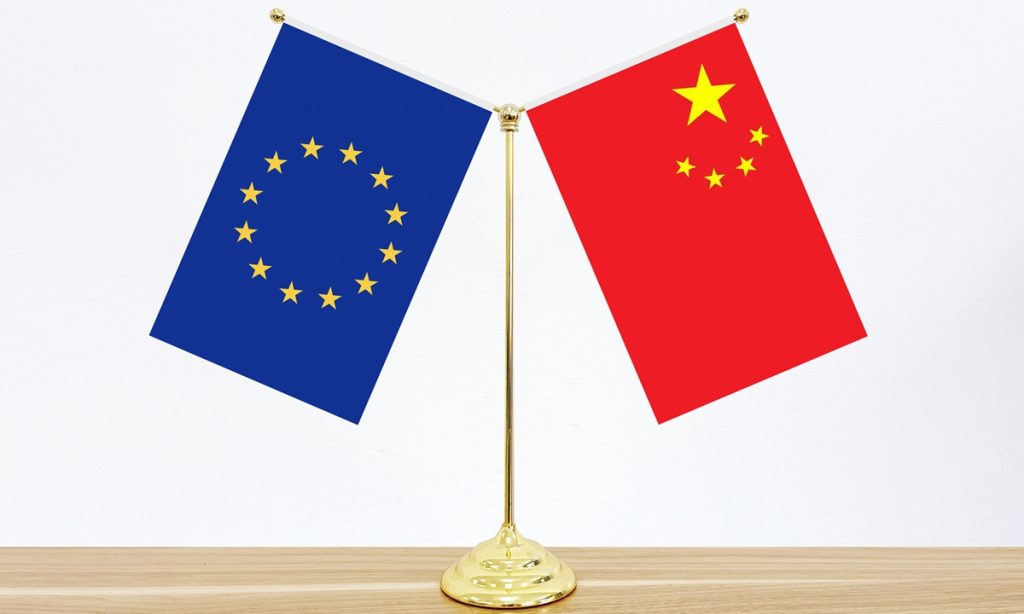Chinese business group in the EU launches financial working group despite Brussels' trade protectionism

The China Chamber of Commerce to the EU (CCCEU) on Friday launched a financial working group and held a forum on cross-border yuan payment and trade cooperation, aiming to strengthen China-EU financial collaboration, even as businesses seek to navigate challenges posed by increasing trade protectionism in the EU.
The new working group, following the digital and green working groups, represents the CCCEU's third working group and its first outside its Brussels headquarters. It underscores the Chamber's dedication to enhancing the presence of Chinese enterprises in the EU market, striving for mutual benefits while acknowledging the diversity across the region.
The establishment of the financial working group aims to foster financial cooperation between the EU and China as well as to promote the internationalization of the yuan. This initiative is part of the CCCEU's efforts to implement the outcomes of the 10th China-EU High-level Economic and Trade Dialogue, Sun Yanhong, a senior research fellow at the Institute of European Studies under the Chinese Academy of Social Sciences, told the Global Times on Saturday.
As Chinese enterprises increase their investment in Europe and amid the increasingly complex China-EU trade situation, this move by the CCCEU will contribute to the internationalization of the yuan, facilitating trade and investment for Chinese companies, said Sun.
Trade protectionism has emerged as a significant barrier to the longstanding trade partnership between China and the EU. Recent actions, including an antitrust investigation into Chinese train-maker CRRC Qingdao Sifang Locomotive by EU regulators, illustrate the EU's shift towards more protective measures.
The EU and China are each other's major trade partners, with China's total imports and exports of goods with the EU reaching 5.5 trillion yuan in 2023, a decrease of 1.9 percent compared to the previous year, according to the General Administration of Customs.
But the EU's increasing trade protectionist measures are prompting concerns among businesses about the negative impact on the close trade ties between Europe and China.
In response to Europe's trade protectionist measures against China, Ola Kaellenius, CEO of German auto giant Mercedes-Benz, criticized the approach, stating that any move by the EU to increase protectionism against China would be a destructive move for an economic region like Europe, according to Reuters.
Trade protectionist actions, such as the investigations against Chinese electric vehicles and CRRC, not only harm the development of Chinese companies in the EU but also cause European corporations like Mercedes-Benz to worry about potential counter measures from China, Sun said.
With the EU implementing more trade protectionist measures and export control policies, it could lead to significant losses for multinational corporations, with ASML from the Netherlands being a prime example, Sun stated.
In January, the Dutch chipmaking equipment producer ASML, warned that the US' export controls could impact its sales in China by 10-15 percent in 2024.